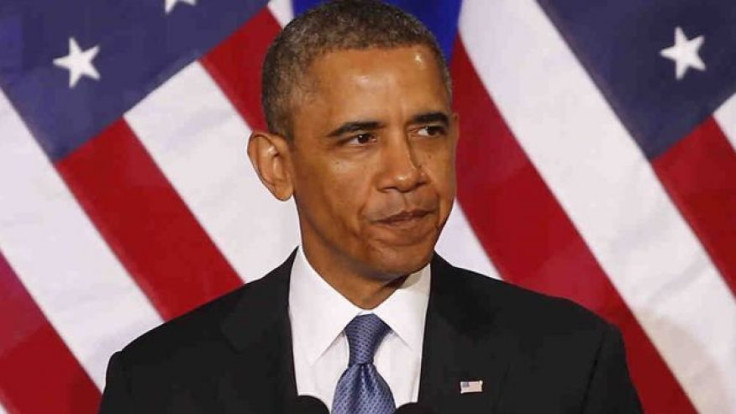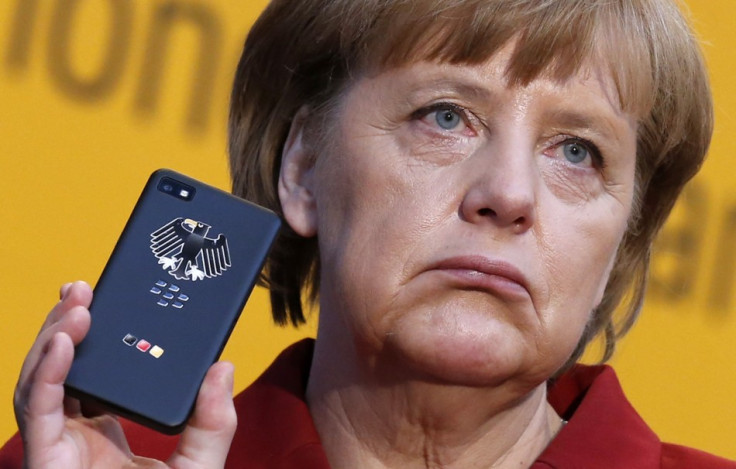Edward Snowden: A Year of Leaks and Revelations

On 20 May, 2013, a 29-year-old contract worker for the National Security Agency (NSA) by the name of Edward Snowden boarded a last minute flight from Hawaii to Hong Kong. With him he carried a flash drive containing 200,000 top secret files from the intelligence agency.
Over the following weeks and months, working in collaboration with journalist Glenn Greenwald and filmmaker Laura Poitras, Snowden was to unload the biggest leak of government secrets in history.
On the one year anniversary of the first leaked files being published, IBTimes UK takes a look at the events that were to fundamentally and irrevocably change the way the world thought about the internet, surveillance and the way that governments abuse them.
Snowden - A timeline of leaks
6 June, 2013: Glenn Greenwald reports in the Guardian that the NSA is collecting the phone records of millions of Verizon customers, hinting at the extent of domestic surveillance under US President Barack Obama.
7 June: The Prism surveillance programme is revealed by The Guardian and the Washington Post, showing how the NSA accesses Google and Facebook servers for the purposes of collecting personal data.

8 June: As more documents are leaked, Obama makes a public statement defending the Prism programme, claiming that it acts within the limits of the law and is necessary for the purposes of national security.
9 June: The identity of whistleblower Edward Snowden is revealed to the world through a video interview with Greenwald and Poitras, published on the Guardian's website.
12 June: UK foreign secretary William Hague dismisses accusations that Government Communications Headquarters (GCHQ) is a puppet of the NSA and claims that UK intelligence agencies act within the law.
14 June: An FBI manhunt is announced by bureau director Robert Mueller, who tells Congress that Snowden will be found and dealt with for the "significant harm" that he inflicted on the US.
19 June: NSA director Keith Alexander makes claims that the surveillance programmes revealed in the leaks helped to prevent 50 terrorist attacks since 2001.
23 June: The Ecuadorian Embassy in London issues Snowden travel documents to relocate from Hong Kong to South America, via a transit stop in Russia. Upon arriving in Moscow, Snowden finds that he is unable to leave Sheremetyevo International Airport as his passport has been revoked by the US government.
29 June: A day after revealing that the NSA is able to track one billion phone calls, German newspaper Der Spiegel publishes an article by filmmaker Poitras that claims the NSA conducted surveillance of European Union offices in the US and Brussels, together with the embassies of France, Italy, Greece, Japan, Mexico, South Korea, India and Turkey.
The NSA is setting fire to the future of the internet
1 July: Snowden applies for Russian asylum amid high-level talks between Obama and Moscow to negotiate the whistleblower's extradition to the US. The next day he withdraws his request and applies for asylum in 20 other countries.
3 July: A plane carrying the president of Bolivia Evo Morales is diverted as a result of suspicions that Snowden is onboard. Tensions between Bolivia and the US heat up as Morales threatens to close the US embassy in his country.
12 July: Having been offered asylum in several South American countries, Snowden seeks asylum in Russia amid concerns that he would be unable to fly out of the country.
1 August: Snowden leaves Sheremetyevo International Airport for the first time since arriving over a month ago.
7 August: Tensions between Russia and the US intensify as a result of the offer for asylum, with President Obama cancelling a meeting with Russian President Vladimir Putin. The granting of a one-year asylum certificate is described by the US as "extremely disappointing".
19-20 August: David Miranda, the partner of journalist Glenn Greenwald, is detained under terror laws at Heathrow airport. His electronic devices are seized. During the detention it emerges that the Guardian was raided by GCHQ agents who supervise the destruction of hard drives containing copies of the leaked files.

20-24 October: It is revealed that the NSA had spied on leaders of Mexico, including the current president Enrique Peña Nieto. US diplomatic relations go from bad to worse a few days later when reports emerged that the NSA bugged the phone of German Chancellor Angela Merkel. A leaked memo shortly after appears to show that the intelligence agency had been monitoring the phone conversations of 35 heads of state.
27 December: Federal judge, US District Judge William Pauley III, rules that the NSA's collection of phone data is legal.
17 January, 2014: President Obama defends the NSA, claiming employees are "not abusing (their) authorities to listen to your private phone calls or read your emails."
10 March: Snowden appears via video-link at the South by Southwest (SXSW) music and technology festival in Austin, Texas. The whistleblower tells the crowd that the NSA and its counterparts are "setting fire to the future of the internet".
27 March: President Obama formally proposes an end to the NSA's bulk collection of data. "I am confident this approach can keep us safe while addressing the legitimate privacy concerns raised," Obama says.
5 June: Snowden expresses his support for the Reset the Net online privacy campaign.
"One year ago, we learned that the internet is under surveillance, and our activities are being monitored to create permanent records of our private lives – no matter how innocent or ordinary those lives might be," Snowden said.
"Today, we can begin the work of effectively shutting down the collection of our online communications, even if the US Congress fails to do the same. Don't ask for your privacy. Take it back."
© Copyright IBTimes 2024. All rights reserved.






